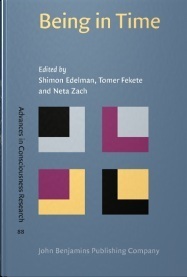What do you think?
Rate this book


261 pages, Hardcover
First published January 1, 2012
My long-standing research and teaching interests focus on understanding
the brain/mind – a problem that, in my view, encompasses the entirety of the
human condition. It is because of my desire to understand, both scientifically and
intuitively, what makes us human that my research projects are so diverse: I
have worked on specific problems in visual perception, in robotics and AI, in
motor control, in language acquisition, in memory, and in consciousness, striving
at all times to integrate “extracurricular” interests such as my love of nature and
of literature with the science that I am engaged in. My work has led to over a
hundred refereed publications, three edited volumes, and two monographs,
including Computing the Mind: How the Mind Really Works (Oxford University
Press, 2008). Of these, the last one, The Happiness of Pursuit (Basic Books,
2012) is a trade book, which became a Kirkus Reviews starred selection and
“Must-Read in new nonfiction” when it came out.